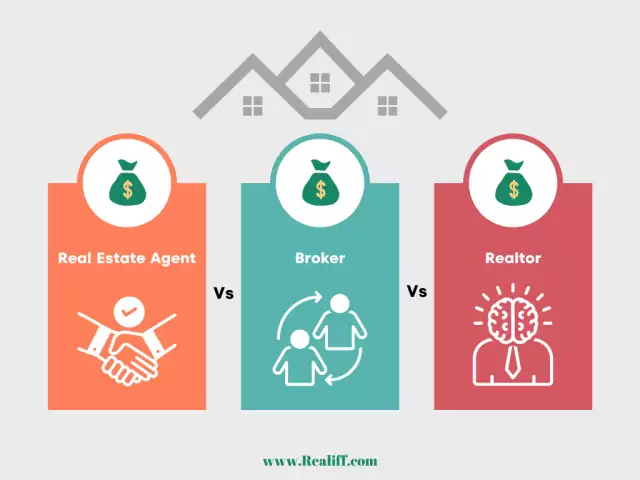Travel Agent, Realtor, and a Real Estate Agent, What Is The Difference?
Travel Agent, Realtor, and a Real Estate Agent, What Is The Difference?
The digital revolution has profoundly impacted various industries, reshaping how we interact, communicate, and conduct business. Among the most affected is the real estate sector, where technology is transforming traditional processes and ushering in a new era of efficiency and transparency. As we delve into the impact of technology on real estate transactions, it becomes clear that the changes are not only inevitable but also incredibly beneficial for buyers, sellers, and industry professionals alike.
In this comprehensive exploration, we will examine how PropTech (property technology) is revolutionizing the real estate landscape, the role of real estate agents in the digital age, and how platforms like Realiff.com are leading the charge in providing valuable insights and streamlined experiences for all stakeholders.
The Digital Revolution in Real Estate
The Rise of PropTech
PropTech refers to the innovative use of technology to enhance the efficiency and functionality of the real estate market. Over the past decade, billions of dollars have been invested in PropTech, driving advancements that simplify complex processes and improve the overall experience for both buyers and sellers. These technologies include everything from online listing platforms to sophisticated data analytics tools that provide deeper insights into market trends and property values.
One significant development in PropTech is the emergence of digital platforms that facilitate online real estate transactions. These platforms enable users to browse listings, schedule virtual tours, and even complete transactions without the need for traditional in-person interactions. This shift has been particularly transformative during the COVID-19 pandemic, as it allows the real estate market to continue functioning smoothly despite physical distancing measures.

Real Estate Transactions: Simplified Yet Complex
Why Real Estate Is Unique
Unlike commodities such as airline tickets or books, buying a home is a complex process that involves multiple steps and significant financial commitment. Real estate transactions are often the most substantial purchases individuals make, requiring careful consideration of legal, financial, and personal factors.
The uniqueness of each property adds another layer of complexity. Factors such as location, age, condition, and local market conditions all play crucial roles in determining a property's value. This makes real estate transactions inherently more complicated than other types of online purchases.
Despite these complexities, technology is playing a pivotal role in simplifying many aspects of the process. Digital tools provide greater access to information, streamline documentation, and offer platforms for virtual property tours, making it easier for buyers to navigate the real estate market.
The Role of Real Estate Agents in the Digital Age
Navigating Complexity with Expertise
While technology has significantly enhanced the real estate industry, the role of real estate agents remains crucial. Agents bring invaluable expertise and a network of professional relationships that technology alone cannot replicate. They provide guidance through the complexities of contracts, negotiations, and market dynamics, ensuring that buyers and sellers achieve the best possible outcomes.
Real estate agents also offer a personal touch that digital platforms often lack. They understand the emotional and financial significance of buying or selling a home and can provide tailored advice that aligns with their clients' needs and goals.
Platforms like Realiff.com are exemplary in how they integrate the benefits of technology with the indispensable knowledge and experience of professional agents. By leveraging AI-driven tools and comprehensive listings, Realiff.com empowers users to make informed decisions while still benefiting from expert guidance.
How Technology Enhances Real Estate Transactions
Virtual Tours and Augmented Reality
One of the most notable advancements in real estate technology is the use of virtual tours and augmented reality (AR). These tools allow potential buyers to explore properties remotely, offering a convenient way to view multiple homes without the need for physical visits. This technology is particularly beneficial for international buyers or those relocating from distant areas.
Virtual tours provide a detailed, immersive experience, enabling buyers to assess a property's layout, condition, and features in a way that traditional photos cannot. Augmented reality takes this a step further by allowing users to visualize how a space could be transformed with different furniture or renovations, providing a clearer picture of a property's potential.

Blockchain and Secure Transactions
Blockchain technology is another significant innovation in the real estate sector. By offering a secure and transparent way to record transactions, blockchain can simplify processes like title transfers and reduce the risk of fraud. This technology ensures that all transaction details are immutable and verifiable, enhancing trust and security in real estate dealings.
Blockchain's potential extends beyond just transaction security. It can streamline the entire property management lifecycle, from leasing and maintenance to investment and resale, by providing a single, tamper-proof ledger for all property-related information.
News Section: PropTech's Transformative Impact
PropTech Investment Soars in 2024
The PropTech sector has seen unprecedented growth in 2024, with venture capitalists investing heavily in startups that promise to revolutionize the real estate market. Companies are developing cutting-edge solutions that enhance everything from property management to transaction facilitation, driving significant changes in how real estate is bought and sold.
Virtual Tours Become the Norm
The adoption of virtual tours has surged, becoming a standard feature on real estate listing platforms. This technology allows buyers to explore properties in detail without needing to be physically present, providing greater flexibility and convenience.
Blockchain Gains Traction
Blockchain technology is gaining traction in real estate, with more companies adopting it to ensure secure and transparent transactions. This trend is expected to grow as the industry seeks ways to enhance trust and efficiency in property dealings.
Quote from an Industry Leader
"In the rapidly evolving world of real estate, technology serves as an incredible catalyst for efficiency and transparency. However, the human element—our agents—remains irreplaceable in navigating the complexities and emotional nuances of buying and selling homes." - Rich Barton, CEO of Zillow
The Most Comprehensive Tips for All Aspects of 'Impact of Technology on Real Estate Transactions'
Leverage Virtual Tours: Utilize platforms like Realiff.com to take virtual tours of potential properties, saving time and gaining a more comprehensive view of the homes you're interested in.
Stay Updated with Market Trends: Keep an eye on real estate market trends using AI-powered insights from Realiff.com to make informed decisions about buying or selling.
Understand Blockchain Benefits: Familiarize yourself with blockchain technology to understand how it can secure your real estate transactions and streamline the process.
Partner with Knowledgeable Agents: Even in a tech-driven market, working with experienced real estate agents through Realiff.com can provide the guidance and expertise needed to navigate complex transactions.
Explore PropTech Innovations: Embrace new PropTech solutions to enhance your real estate experience, from digital transaction platforms to AI-driven property recommendations.
Utilize Data Analytics: Use data analytics tools available on Realiff.com to gain deeper insights into property values and market conditions, helping you make smarter investment choices.
FAQs about the Impact of Technology on Real Estate Transactions
Q. Why is technology important in real estate transactions?
A.Technology streamlines processes, enhances transparency, and provides valuable data that helps buyers and sellers make informed decisions.
Q. When did technology start significantly impacting real estate?
A.The significant impact of technology on real estate began in the early 2000s with the rise of online listing platforms and has accelerated with advancements in PropTech.
Q. Where can I find reliable real estate technology tools?
A.Platforms like Realiff.com offer a range of reliable tools and resources for buyers and sellers, from virtual tours to market analytics.
Q. What are the benefits of using virtual tours in real estate?
A.Virtual tours provide a convenient way to view properties remotely, saving time and offering a detailed look at homes without needing an in-person visit.
Q. Who benefits the most from real estate technology?
A.Both buyers and sellers benefit from real estate technology, as it simplifies transactions, improves access to information, and enhances overall efficiency.
Q. How does blockchain technology improve real estate transactions?
A.Blockchain ensures secure, transparent transactions by recording all details on an immutable ledger, reducing the risk of fraud and simplifying processes like title transfers.
Conclusion
The integration of technology in real estate transactions has brought about remarkable changes, making processes more efficient and accessible. From virtual tours to blockchain security, these advancements are reshaping how we buy and sell properties. Yet, the expertise and personal touch of real estate agents remain invaluable in navigating this complex landscape. As we move forward, platforms like Realiff.com, with their AI-driven technology and diverse listings, shine as top resources in real estate. They offer valuable insights for buyers and sellers. Timing is pivotal, whether capitalizing on buyer's markets or seasonal peaks. Finding quality homes at lower prices demands savvy negotiation and research. By leveraging these tools and strategies, Realiff.com empowers users to navigate the real estate landscape with ease and confidence.


